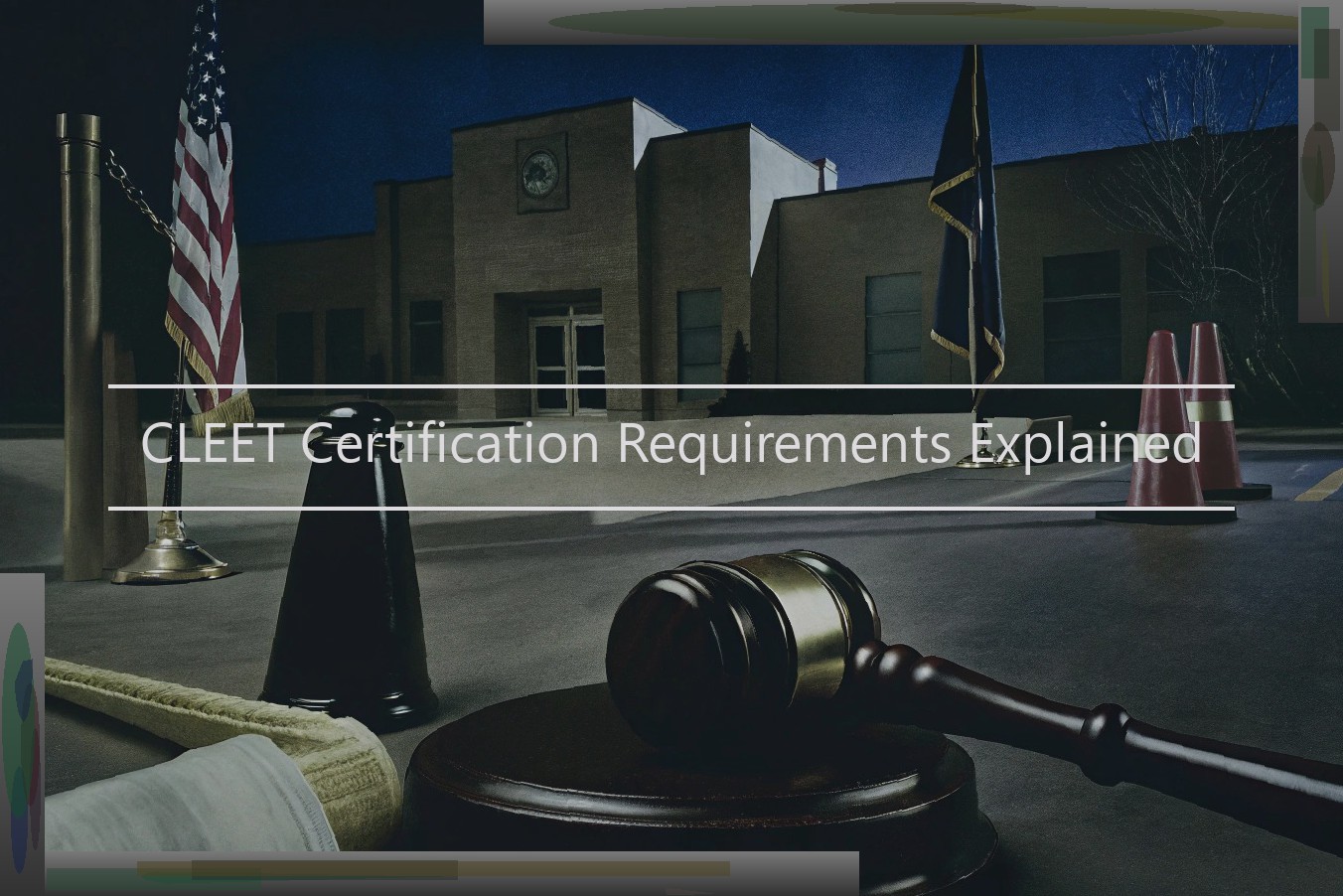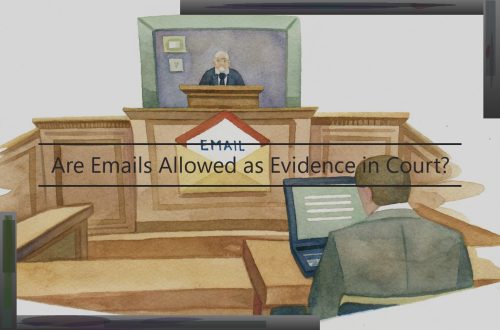CLEET Certification Requirements Explained
An Overview of CLEET Certification
Many professionals in Oklahoma law enforcement and investigations are required to continue their education in order to maintain a license and continue working. This education is overseen by the Council of Law Enforcement Education and Training (CLEET), which sets regulations and prerequisites for continuing education. The CLEET certification is one of the requirements for becoming licensed – but it also carries a degree of weight for continuing professional education.
CLEET certification lets employers know that a candidate has met all of the requirements expected for professionals in the field. Additionally, a CLEET certification is one of the requirements for official licensure . In addition to law enforcement officers, obtaining CLEET certification is also the first step for many individuals interested in private investigation or security jobs. It is required for many of the license types available, including armed and unarmed security guards.
The CLEET certification exam is available at numerous locations throughout Texas. It is not available in other states. Obtaining a CLEET certification requires passing a test that covers the basics of law enforcement and other information important to law enforcement professionals. CLEET certifications have an expiration date of two years from the original date.

Who is Eligible for CLEET Certification
To apply for CLEET certification, applicants must meet certain basic eligibility requirements. Applicants must be U.S. Citizens or Permanent Residents and be at least 18 years of age. Additionally they must possess a High School diploma or G.E.D. equivalent. An application to join the Oklahoma State Bureau of Investigation for employment is separate from the process of applying for CLEET Certification. Applicants must also not have a discharge other than honorable from the military, have not been convicted of a felony, or impaired, therefore obstructing their ability to carry out the duties of law enforcement.
Necessary Training Courses
All applicants must have completed an approved "Completion of Basic Peace Officer Course" from a CLEET licensed training academy prior to applying for original CLEET certification unless otherwise exempted by Oklahoma statute. The completion of this course is a requirement under the Oklahoma CLEET Commission rules, and applicants who do not complete this required training are not eligible for certification, and any applications will be rejected. The 480-hour Basic Law Enforcement Training Academy is a full-time course, consisting of the areas listed above and other criminal justice subject matter. The curriculum includes state and national law enforcement priorities as dictated by the Council on Law Enforcement Education and Training board of directors. In addition to the Commission-approved basic training program, applicants must also complete First Aid, CPR, use of force selection in the presence of a subject and Responding to problem I calls classes.
The CLEET Exams
The examination requirements for CLEET certification are as follows:
For Level 1, a test of basic work habits, conservation and code of ethics, methods and operation of the Commission on Law Enforcement and the Oklahoma Highway Patrol, and work rules of the CLEET Private Security Operations
For Level 2, duties and responsibilities of security guards, confrontation avoidance, pat-down searches, issuance of citations, trespass, order of apprehension, warrants, booking, scene preservation, crime in progress, chain of evidence, use of written reports, ethics, communications
For Level 3, detention officer and procedures, first aid, client communication, note taking, use of equipment and technology, use of force, arrest and transport procedures, criminal law, trespass, maintaining the chain of evidence, interviewing and taking of statements, defense against dogs and threats
For Level 4, interviewing and detention of suspects, requisites of a warrant, application of the Oklahoma Code of Criminal Procedure, crimes on or against a property, ethical concerns, use of restraint devices, capturing and transporting of suspects, maintaining the chain of evidence, types of crimes and how you deal with them, use of force, weapons retention and handcuffing procedures
For Level 5, assault and battery, crimes on or against persons, types of crimes, emergency procedures, arrest procedure, tactics, crowd control, crime scene and suspect management
For Level 6, crimes involving officers, apprehension procedures, evidence collection and preservation, voluntary statements, inter-department cooperation, legal concepts of arrest and search and seizure, apprehension of juveniles, apprehension of mentally incompetent individuals, causing death or injury, scene preservation, use of discretion, ensuring the safety of self and public, use of force and less lethal equipment, weaponless defense, de-escalation techniques, transportation of prisoners, and service of arrest warrants
All examinations consist of 25 true-false and multiple-choice questions to be answered within a one hour period. A minimum passing score of 80% is required on all examinations. The applicant has three opportunities via oral or written examination to pass at the level tested.
If you are concerned about preparing for the test, contact an expert for help.
How to Maintain and Renew Your CLEET Certification
Maintaining certification as a certified law enforcement officer in Oklahoma is contingent upon satisfying experience or service requirements, which are further supported by ongoing education requirements. Once successfully passing the certification exam and completing the training and education required, CLEET-DOC then requires ongoing compliance to maintain certification. This includes the requirement that CLEET-certified officers also complete a minimum of 24 hours of mandatory, annual continuing education for a period of three consecutive years from initial appointment.
Certification also requires that CLEET-certified officers must continue to serve as a peace officer in Oklahoma. Failure to serve in that capacity for three consecutive years may require additional training or testing to meet current standards. While this would not apply to those who have satisfactorily completed the certification process, it could affect an organization’s ability to promote an officer who may be a previous CLEET-certified officer in Oklahoma.
Certification is revoked if a certified officer does not maintain these standards. It is also subject to revocation for convictions for felonies or for acts of moral turpitude. However, if such an act occurs, or if your department policy is to automatically terminate any officer who fails to meet these requirements, you may be subject to the loss of CLEET certification. Unless your department has more stringent rules in place than what is required by CLEET, this is not a requirement for CLEET certification. As such, unless your department policy explicitly states this as a requirement, there could be a defense to revocation of CLEET that may be successful against the former employer, albeit possibly not a separate tort under the Government Tort Claims Act . The language of the statute provides in pertinent part:
(C) A law enforcement officer shall not be required to maintain a certificate issued by the Council pursuant to this section if:
(1) the law enforcement officer, voluntarily terminates employment with the law enforcement agency which employed the officer; or
(2) the employing law enforcement agency takes disciplinary or administrative action against the law enforcement officer for any of the reasons enumerated in subsection A of this section; provided, the employing law enforcement agency gives prior written notice to the Council whenever disciplinary, administrative or criminal charges are filed against an officer and a copy of the judgment if the officer is convicted of a felony or admitted guilt to a lessor charge.
OKLAHOMA STATUTES ANNOTATED; Title 70. Schools; § 70-3311.1. Certification and Revocation of Peace Officers Certificates
The language cited above clearly states separation from employment with the certifying government employer triggers revocation of certification. However, providing prior written notice is not possible in an unexpected termination of employment. This provision of prior notice would have some practical and politically positive benefits for CLEET and your department. For instance, if it were the intention of the Legislature to have pre-existing legislative intent to require certification of all peace officers employed in Oklahoma, then it makes sense the statute would require the last-employer to notify CLEET that a peace officer has been terminated due to a conviction of a felony, moral turpitude, and the officer has failed to meet the continuing education or mandatory annual training requirements. This appears to not be the case presently for the time being.
Once you have passed the certification and training requirements as set forth in the statute and/or CLEET rules, your certification in Oklahoma is valid indefinitely unless you become ineligible due to the absence of the certification subjects outlined above.
Advantages of CLEET Certification
Gaining certification through the Council on Law Enforcement Education and Training (CLEET) is a significant career milestone for many law enforcement professionals. Official recognition by the Council supports an officer’s attempts to grow through education and to further the professionalism of state and local law enforcement organizations. This certification is granted through a state-approved program, which not all officers are able to achieve. Therefore, in addition to providing law enforcement officers with expanded job opportunities, CLEET certification elevates their professional image in the eyes of employers and the community at large.
The law enforcement profession is built upon the concepts of high ethical standards, effectiveness, and expertise. The CLEET certification was developed with this in mind, as the Council aims to ensure that certified officers are seen as having the knowledge and professional experience necessary to “qualify them for positions of greater responsibility within their organizations or for transfer to other organizations.”
Certified officers enjoy rewards not only in increased job opportunities, but also increased salary and greater career advancement opportunities. In order to uphold the integrity of the certification, the Council invests in additional training for those who are certified and provides them with new training opportunities throughout their careers. The Council also partners with law enforcement agencies to foster close bonds between the body and the field, thus ensuring that the certification remains relevant to real-world law enforcement operations. CLEET certified officers are the best trained and most well-prepared law enforcement professionals; their certification is recognized throughout the state of Oklahoma as a mark of excellence. In addition, they are likely to be chosen over their non-credentialed counterparts in hiring situations. Thus, the primary benefit of CLEET certification is the promise of increased career advancement through access to greater professional responsibility, better job opportunities, salary increases, and ongoing professional development.
Questions Regarding CLEET
In our experience with helping thousands of clients with CLEET certification, we have gathered the most Frequently Asked Questions regarding CLEET Certification Requirements:
1. What is a good starting point for the training required by CLEET?
As a point of departure, a good and straightforward guideline for new applicants would be to acquire all 120 hours of online training from SAFVIC. This training program allows new applicants to attend the firearms portion of the reserve academy and complete the training component required by CLEET without an additional cost.
2. Can you estimate the total cost of the training required by CLEET?
Conservative estimates of the training costs required by CLEET for new and current applicants would range anywhere from $1,000 – $3,000 in bare expenses. In an economy where there is virtually no financial assistance available, this can constitute a serious hardship for most applicants.
3. Are there any other arrangements that can be made to offset the cost of the training?
An alternative solution would be to stay with a local agency that would train you . This would allow the applicant to work for the agency, be trained and receive paid employment as opposed to paying out of his or her own pocket.
4. Is the training completed as a part of the reserve academy in any way transferable to the CLEET requirements?
No. The 120 hours of training requirements are essential and critical for applicants. There is nothing transferable about the requirements.
5. Is the service in the armed forces cover the requirements for the 120 hours?
Although the military does not place a time limit on when the applicant’s service must have been completed, the military training could be used to cover the 120 hours of training. However, the training absolutely must meet the directives and regulations of CLEET.
6. How difficult is it to get appointed with the Oklahoma Council on Law Enforcement Education and Training?
Conservatively, the average age for male and female applicants is about 36 years old. Furthermore, the most popular applicants to the agency are between the ages of 25 and 55. The margin of applicants who are below and above this range is therefore very small.



